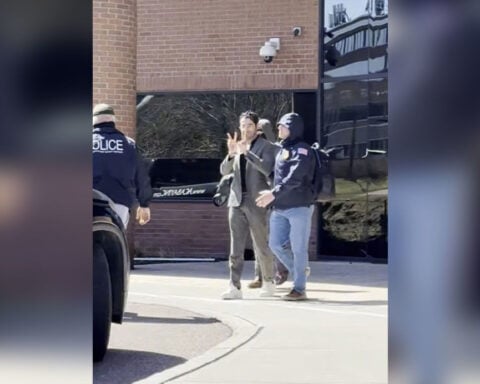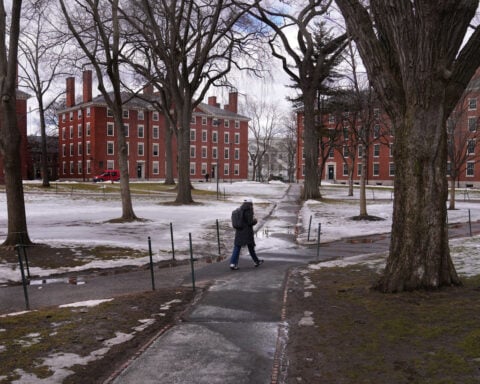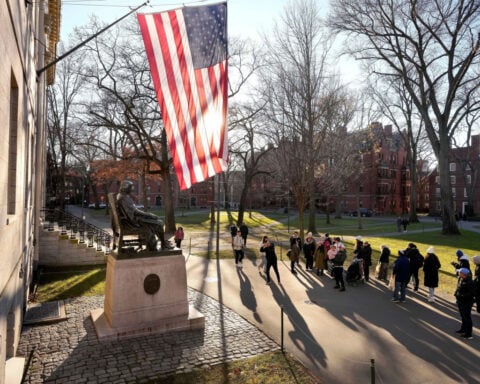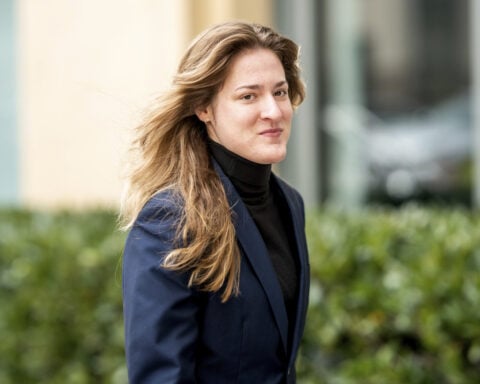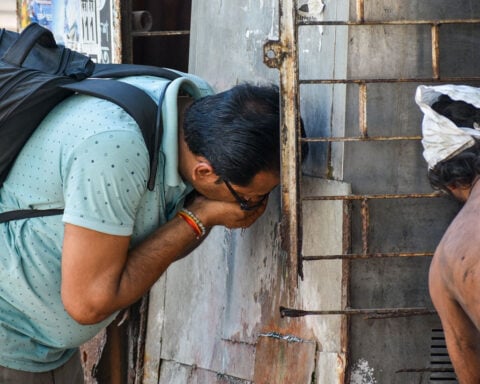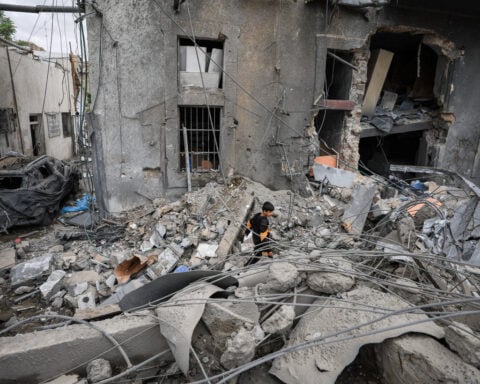If you are an educator or a parent, you have likely already seen many ways in which “the kids are not alright.”
Mounting evidence shows that the mental health of American youth has been declining for at least a decade. During the pandemic, it took an even sharper downturn. The Centers for Disease Control and Prevention reports that in 2021 – the most recent data available – 42% of high school students experienced persistent feelings of sadness or hopelessness and 22% seriously considered suicide. This is a significant increase from 10 years earlier, when 28% of students reported persistent feelings of sadness or loneliness and 16% considered attempting suicide.
The isolation of pandemic stay-at-home orders and the trauma of losing loved ones contributed to declines in well-being. Schools have an important role to play in addressing this crisis.
As researchers in education, my co-author, Javaid Siddiqi and I interviewed educators working in school districts that faced extreme adversity during the pandemic but still found success in supporting their students.
One district in particular stood out for the challenges it faced. At the time of our study in 2020, Bronx Community School District 7 in New York City was not just in the poorest congressional district in the nation, but it also experienced one of the highest death rates per capita from COVID-19.
Despite these obstacles – all of which were outside of their control – educators told us they found ways to be there for their students and support their mental health.
In the course of our research, three strategies became apparent. The lessons show promise not just in this section of New York City, but for the rest of the country as well.
1. Connect to community
In 2023, U.S. Surgeon General Vivek Murthy raised alarm about the essential need for social connection within communities to heal America’s “epidemic of loneliness.” Schools, in particular, have a history of being hubs for connection. In the pandemic, that was especially apparent when they became centers of information, offering academic support and internet access as well as food and nutrition, even when classes were remote.
Across the country, educators quickly realized that psychologically isolated students also needed social connection, and they responded with innovation. They developed bedtime story videos for families, online cooking lessons that invited community members into their homes, and socially distanced dance classes on school athletic fields.
Bedtime videos can be beneficial during difficult times.
In Bronx CSD 7, a partnership with a nearby hospital increased access to much-needed mental health services for students and educators.
Community connections help educators understand child and family needs and allow community members to trust schools as a source of support. They also bring community assets, such as free clinics, food pantries, housing programs and mental health resources, into schools where families can more easily access them.
With emergency educational funding from the pandemic expiring on Sept. 30, 2024, school-community partnerships will be essential for continuing mental health services in schools to support psychological recovery.
2. Give students a seat at the table
Relationships within schools are also important for improving and maintaining mental health. Research shows that when school leaders involve students in decision-making, it encourages them to develop leadership skills and increases the overall well-being of the community, as indicated by civic engagement and health outcomes.
In Bronx CSD 7, students are part of the Superintendent’s Advisory Council. This meant that during the pandemic they were able to bring to light the challenges of engaging in online learning all day without a break. Unlike a regular school day, where students would move between classes and chat with teachers and friends in the hallways, the online school day went from one class period to another with no built-in opportunities to take breaks, socialize and refocus. Experts were quickly recommending that online school days be restructured to meet student needs. But students knew this first.
When youth are empowered to share their stories, they not only strengthen their school community, but they also serve as trusted messengers for their peers. During the pandemic, students around the country created youth-led podcasts to learn from each other. They also documented their experiences, processing psychological upheaval, communicating their needs and supporting each other. Education researchers have referred to these empowering connection activities as “cultural assets” because they not only support young people, but they also help teachers approach students in more culturally sensitive ways.
3.Think developmentally
Since the end of the pandemic, school districts across the country have been dedicating resources and time to recovering “lost learning,” the phrase used to describe the test score declines attributed to school closures and emergency online learning. But some students experienced another equally devastating decline that’s gotten less attention – their social and emotional development.
To soften the impact of social isolation, educators in Bronx CSD 7 intentionally dedicated time during remote learning to social interactions. They provided informal connection spaces during the school day, played video games with their students and encouraged them to eat lunch together online. Research shows that young people who communicated more often with friends were less impacted by the social isolation of the pandemic. The experience of Bronx CSD 7 shows that schools could play an instrumental role in nurturing this force for mental well-being.
Every district faced its own complex challenges during the pandemic, and educators across the country have supported their students, communities and each other in the recovery process. As school leaders consider ways to recover lost academic opportunities and learning, it is equally important to help students stabilize their mental health and boost their overall well-being.

Faiza Jamil does not work for, consult, own shares in or receive funding from any company or organization that would benefit from this article, and has disclosed no relevant affiliations beyond their academic appointment.
Source: The Conversation

 Trump has begun another trade war. Here's a timeline of how we got here
Trump has begun another trade war. Here's a timeline of how we got here
 Canada's leader laments lost friendship with US in town that sheltered stranded Americans after 9/11
Canada's leader laments lost friendship with US in town that sheltered stranded Americans after 9/11
 Chinese EV giant BYD's fourth-quarter profit leaps 73%
Chinese EV giant BYD's fourth-quarter profit leaps 73%
 You're an American in another land? Prepare to talk about the why and how of Trump 2.0
You're an American in another land? Prepare to talk about the why and how of Trump 2.0
 Chalk talk: Star power, top teams and No. 5 seeds headline the women's March Madness Sweet 16
Chalk talk: Star power, top teams and No. 5 seeds headline the women's March Madness Sweet 16
 Purdue returns to Sweet 16 with 76-62 win over McNeese in March Madness
Purdue returns to Sweet 16 with 76-62 win over McNeese in March Madness

